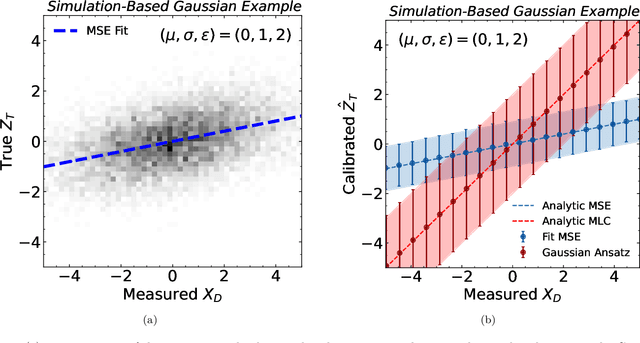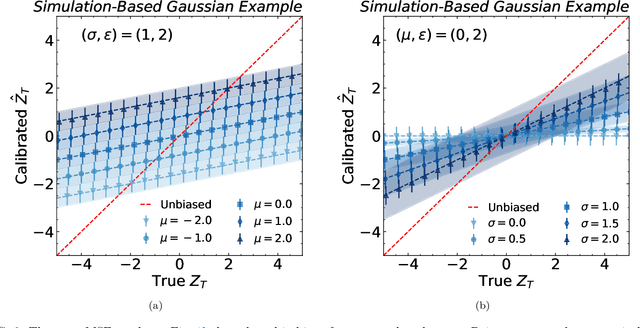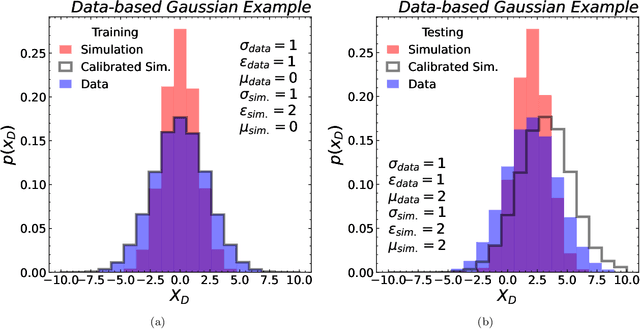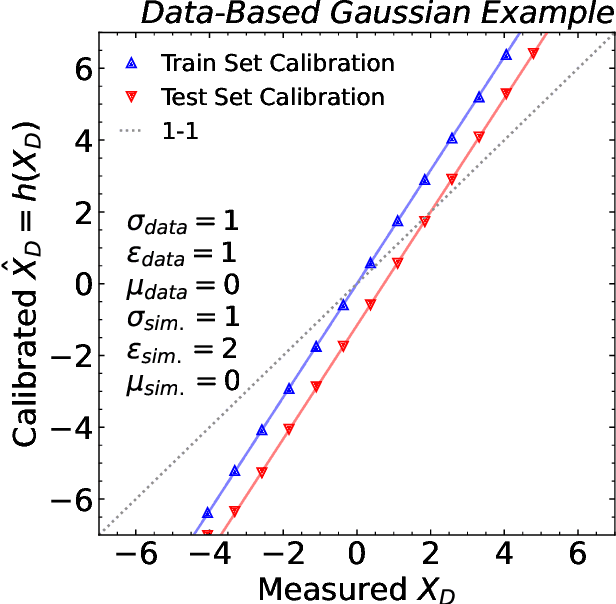Bias and Priors in Machine Learning Calibrations for High Energy Physics
Paper and Code
May 10, 2022



Machine learning offers an exciting opportunity to improve the calibration of nearly all reconstructed objects in high-energy physics detectors. However, machine learning approaches often depend on the spectra of examples used during training, an issue known as prior dependence. This is an undesirable property of a calibration, which needs to be applicable in a variety of environments. The purpose of this paper is to explicitly highlight the prior dependence of some machine learning-based calibration strategies. We demonstrate how some recent proposals for both simulation-based and data-based calibrations inherit properties of the sample used for training, which can result in biases for downstream analyses. In the case of simulation-based calibration, we argue that our recently proposed Gaussian Ansatz approach can avoid some of the pitfalls of prior dependence, whereas prior-independent data-based calibration remains an open problem.
 Add to Chrome
Add to Chrome Add to Firefox
Add to Firefox Add to Edge
Add to Edge